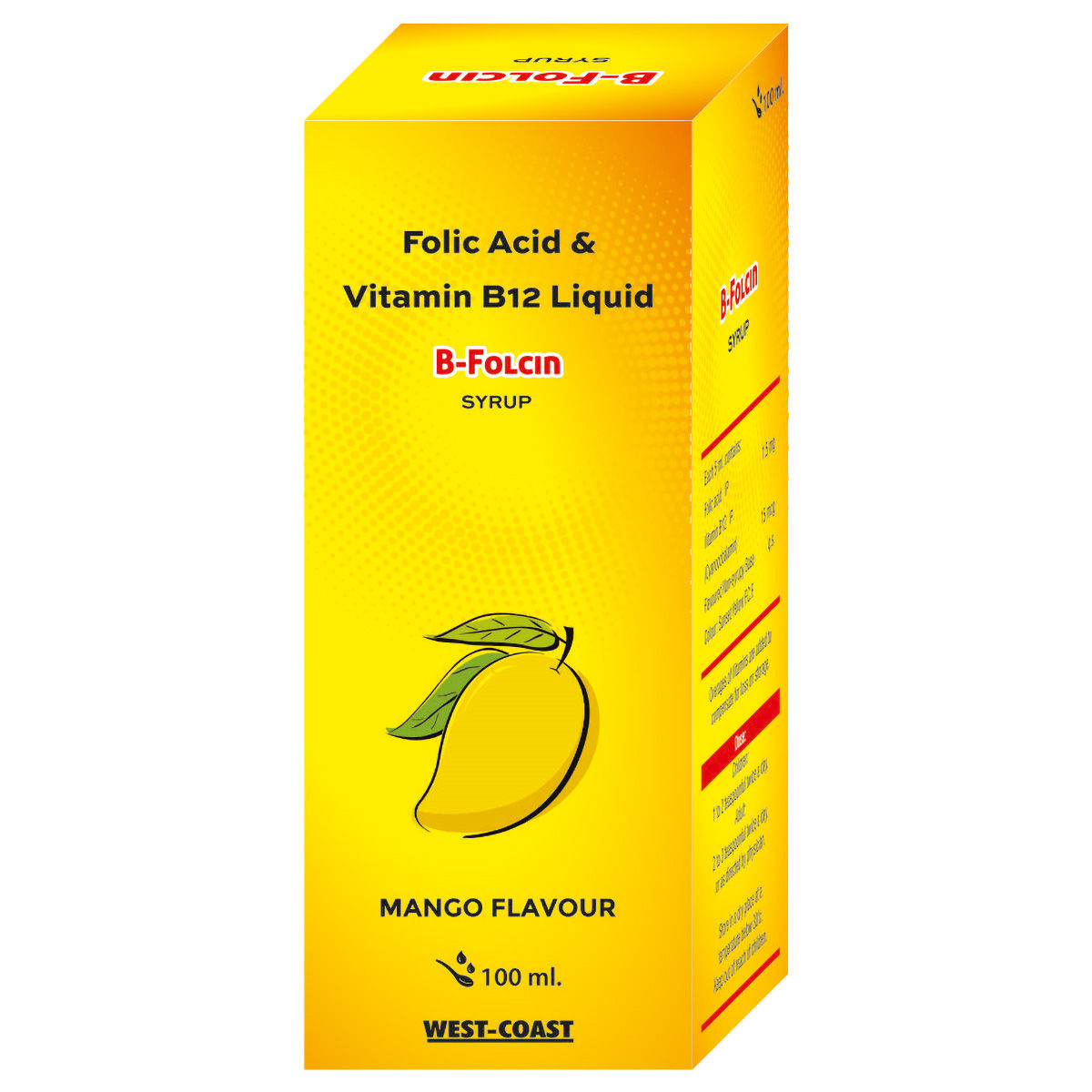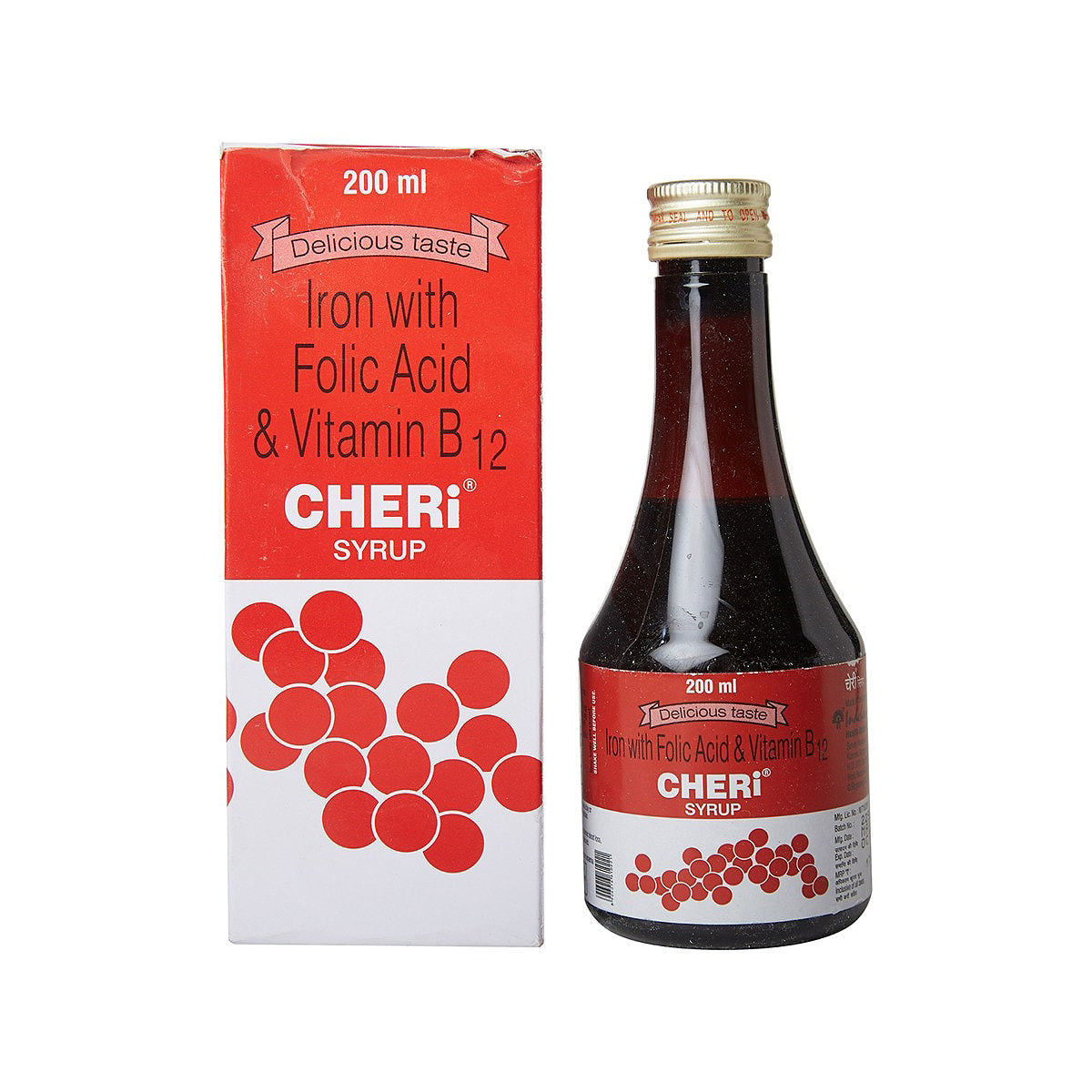Folic Acid+cyanocobalamin
About Folic Acid+cyanocobalamin
Cyanocobalamin+folic Acid belongs to the class of 'multivitamins' primarily used to treat nutritional deficiencies due to various complications or long-term diseases. It is used to treat and prevent folic acid (vitamin B9) deficiency, anaemia (lack of red blood cells), peripheral neuropathy (nerve disorder), neural tube defects (birth defects) like spina bifida (a spinal cord defect), and anencephaly (a brain defect) and hyperhomocysteinemia (high levels of homocysteine in the blood).
Cyanocobalamin+folic Acid contains Folic acid (vitamin B9) and Cyanocobalamin (vitamin B12). Folic acid treats low levels of Vitamin B9, anaemia (low haemoglobin), neural tube defects, cleft palate (birth defects), and anaemia caused by faulty development of red blood cells, such as after stomach surgery or during pregnancy. Cyanocobalamin is a synthetic form of vitamin B12 that is not found in nature, regulating body functions like cell growth, blood formation, and protein synthesis. It is used in the treatment of pernicious anaemia (red blood cells are not produced due to Vitamin B12 deficiency), diabetic neuropathy (nerve damage due to high blood sugar levels), alcoholic neuropathy, and multiple sclerosis (immune system disease affecting the brain).
Cyanocobalamin+folic Acid is available in the form of tablets and syrup formulations. Your doctor will decide the dosage based on your medical condition. In some cases, you may experience common side effects like stomach upset and loss of appetite. These side effects do not require medical attention and gradually resolve over time. However, you are advised to talk to your doctor if you experience these side effects persistently.
If you are known to be allergic to Cyanocobalamin+folic Acid or its inactive components, please inform your doctor. If you are a pregnant or breastfeeding mother, please consult your doctor before taking Cyanocobalamin+folic Acid. To treat your condition effectually, continue taking Cyanocobalamin+folic Acid for as long as your doctor has advised. Let your doctor know if you are using any other drugs, and herbal products before starting Cyanocobalamin+folic Acid. Please tell your doctor if you have malabsorption syndrome (difficulty absorbing nutrition from food). Keep your doctor informed about your health condition and medicines to rule out any side effects.
Uses of Folic Acid+cyanocobalamin
Medicinal Benefits
Cyanocobalamin+folic Acid is used to treat nutritional deficiencies and contains Folic acid and Cyanocobalamin. Folic acid (vitamin B9) is a water-soluble vitamin that treats and prevents vitamin B9 deficiency, anaemia (lack of red blood cells), neural tube defects, cleft palate (birth defects), anaemia caused by faulty development of red blood cells such as after stomach surgery or during pregnancy, Coeliac disease (the body cannot digest gluten), and tropical and non-tropical Sprue (the gut cannot absorb food). On the other hand, Cyanocobalamin (vitamin B12) is a synthetic form of vitamin B12 that is not found in nature, treats Vitamin B12 deficiency, pernicious anaemia (low haemoglobin), alcoholic neuropathy, and hyperhomocysteinemia (high levels of homocysteine in the blood), diabetic neuropathy (nerve damage due to high blood sugar levels), bone marrow disorder, and multiple sclerosis (immune system disease affecting the brain).
Directions for Use
Storage
Side Effects of Folic Acid+cyanocobalamin
- Upset stomach
- Loss of appetite
Drug Warnings
Inform your doctor if you are allergic to Cyanocobalamin+folic Acid or its inactive components. Let your doctor know if you are using any other drugs and herbal products before starting Cyanocobalamin+folic Acid. If you are pregnant or breastfeeding, it is advised to inform your doctor before using Cyanocobalamin+folic Acid. Cyanocobalamin in Cyanocobalamin+folic Acid is excreted into breast milk. Do not take Cyanocobalamin+folic Acid if you have had a history of Leber’s optic neuropathy (eye problems), polycythemia vera (blood disorder), hypokalemia (low potassium in the blood), cancer, and gout, if you have malabsorption syndrome (difficulty absorbing nutrition from food), this disease may make it hard to absorb B complex vitamins when given orally. Your doctor may suggest other dosage forms of Cyanocobalamin+folic Acid in such a case.
Drug Interactions
Drug-Drug Interactions: Cyanocobalamin+folic Acid may interact with anti-cancer medications (bortezomib, capecitabine, fluorouracil, altretamine), a medication used to treat obesity (orlistat), bile acid sequestrant (cholestyramine, colesevelam, colestipol), blood thinner (anisindione, warfarin, dicumarol) and a medication used to treat hyperphosphatemia (sevelamer).
Drug-Food Interactions: No interaction found/established.
Drug-Disease Interactions: Use Cyanocobalamin+folic Acid with medical advice if you have malabsorption syndrome (difficulty absorbing nutrition from food), Leber's optic atrophy, or a blood disorder.
Drug-Drug Interactions Checker List:
Safety Advice

Alcohol
cautionIt is advised to limit alcohol intake while using Cyanocobalamin+folic Acid.

Pregnancy
consult your doctorLet your doctor know if you are pregnant or planning to conceive before taking Cyanocobalamin+folic Acid. Your doctor will weigh the benefits and any potential risks before advising. Please consult your doctor.

Breast Feeding
consult your doctorPlease consult your doctor before taking Cyanocobalamin+folic Acid if you are breastfeeding. Your doctor will weigh the benefits and any potential risks before advising. Please consult your doctor.

Driving
safeNo interaction was found/established.

Liver
cautionLet your doctor know if you have any history of liver diseases before taking Cyanocobalamin+folic Acid. Your doctor will weigh the benefits and potential risks before recommending them. Please consult your doctor.

Kidney
cautionLet your doctor know if you have any history of kidney diseases before taking Cyanocobalamin+folic Acid. Your doctor will weigh the benefits and any potential risks before recommending. Please consult your doctor.

Children
cautionThe doctor will advise the dosage of Cyanocobalamin+folic Acid based on the child's age and weight.
Habit Forming
Diet & Lifestyle Advise
- Try Vitamin B complex food sources like milk, cheese, eggs, liver and kidney, chicken, red meat, tuna, mackerel and salmon, shellfish, oysters, clams, dark green vegetables, such as spinach and kale, beets, avocados and potatoes, whole grains, cereals, kidney beans, black beans and chickpea.
- Include fruits like citrus, banana and watermelon in your diet.
- Exercise regularly, and maintain a healthy lifestyle. Avoid excess fatty foods.
- Avoid smoking and alcohol consumption.
Special Advise
Clinical monitoring of Vitamin B12 and folic acid levels through blood examinations is recommended.
Your doctor may recommend stopping the use of Cyanocobalamin+folic Acid as it contains folic acid and should not be routinely used in patients receiving coronary stents.
Patients Concern
Disease/Condition Glossary
Vitamin B9 deficiency: When your body doesn't have adequate levels of a water-soluble vitamin called Folic acid or Vitamin B9, this disease is developed. Vitamin B9 deficiency symptoms include fatigue, mouth sores, a weak immune system, tiredness, and low energy level.
Vitamin B12 deficiency: When your body doesn't have adequate mineral levels called Vitamin B12 and low haemoglobin required for red blood cell formation. Signs and symptoms of low vitamin B12 include fatigue, breathlessness, numbness, poor balance, and memory trouble.
FAQs
Cyanocobalamin+folic Acid is used to treat nutritional deficiencies due to various complications or long-term diseases. It is used to treat and prevent folic acid (vitamin B9) deficiency, anaemia (lack of red blood cells), peripheral neuropathy (nerve disorder), neural tube defects (birth defects) like spina bifida (a spinal cord defect), and anencephaly (a brain defect) and hyperhomocysteinemia (high levels of homocysteine in the blood).
Vitamin B12 deficiency is caused when you don't have enough Cyanocobalamin or vitamin B12 levels in your body. You can include natural Vitamin B12 sources like eggs, beef, liver, chicken, trout, salmon, tuna, fish, clams, fortified breakfast cereal, low-fat milk, yoghurt, and cheese in your diet for treating the deficiency. If you still have low levels of B12, please consult your doctor about its supplements.
Cyanocobalamin+folic Acid may interfere with laboratory tests like urine tests for urobilinogen. Please make sure your doctor and the laboratory staff know that you take Cyanocobalamin+folic Acid before undergoing any blood and urine examinations.
Common signs and symptoms of low folic acid (vitamin B9) are mouth sores, fatigue, weakness, pale skin, lethargy, irritability, shortness of breath, and tongue swelling.
Do not discontinue Cyanocobalamin+folic Acid without consulting your doctor, as it might lead to recurring symptoms. To treat your condition effectually, continue taking Cyanocobalamin+folic Acid for as long as suggested. Do not be reluctant to speak with your doctor if you feel any difficulty while taking Cyanocobalamin+folic Acid.









